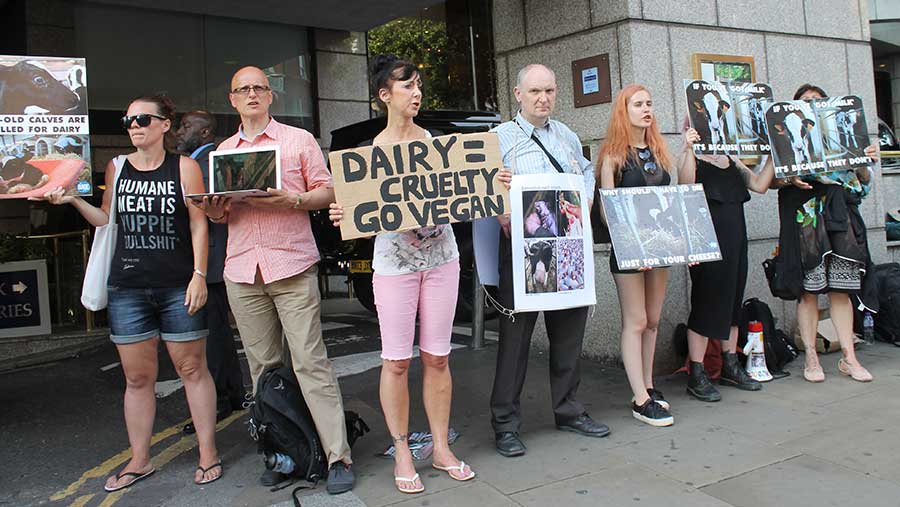Opinion: Joined-up response needed to balance vegan arguments
 © Philip Clarke
© Philip Clarke This month, Kite Consulting published Dairy 3.0 – a new paradigm for the dairy industry, a timely and ambitious analysis of the challenges faced by the dairy sector from veganism, climate change and wider social changes.
Kite is probably the first group to link a detailed exposition of the social reasons for the rise of veganism with key strands of scientific research on the environmental impact of dairy, its health benefits and a strategy for the industry to future-proof itself. For this, it deserve to be congratulated.
See also: Meat eaters or vegetarians – who has the better arguments?
Nowadays, it feels like every second word I hear is “vegan”, so I apologise for adding to the noise. But when a document concludes that our industry requires “a wholesale change in culture and approach”, it would be remiss not to take notice.
Much of the report confirms what we already knew – vegans are a small but vocal minority. The exponential growth in certain demographics (female millennials) has been driven by social media, and many of the arguments used to promote the cause do not stand up to scrutiny.
Farmers will also be pleased to know that the report isn’t suggesting we all become keyboard crusaders and join Twitter to help fight the onslaught.
However, there is plenty of cause for concern. It’s not the eating habits of vegans themselves that the industry needs to worry about (the decline in demand for liquid milk has more to do with people switching away from breakfast cereal altogether, rather than the uptake of almond milk), but their influence on wider society, particularly Defra and the media.
The majority of people in the UK are ethically comfortable with animal products. We have robust welfare standards, and the health benefits of dairy are easy to demonstrate.
It’s the climate change part of the argument that is our Achilles heel, and the one that vegans have really capitalised on in recent years.
If Defra believes the hype and imposes punitive environmental sanctions on dairy farms (which looks likely in the post-Brexit era of public money for public goods), this will have a drastic impact on our businesses and the ways we produce milk.
How should we respond? The report suggests the industry should work collaboratively with government to come up with solutions – a good intention, but challenging while Brexit continues to consume every available drop of oxygen in Westminster.
It also suggests we move into a proactive position, demonstrating to the consumer we are delivering what they want, instead of expecting them to thank us for feeding them.
A combination of brand marketing, product innovation and promotion of the health benefits of dairy are all seen as steps towards this.
But who should take responsibility? AHDB and Dairy UK have had measurable success with the Department of Dairy Related Scrumptious Affairs campaign, but this kind of marketing is very expensive.
Arla is doing a great job of growing its brands while recognising consumer concerns with its Carbon Net Zero plan and new bull calf policy.
But Muller is tied up with cost saving, and the picture gets even more fragmented further down the supply chain.
Kite’s research paper is an important piece of work that shines a light on a key issue facing the dairy sector. Now it requires a joined-up response from the industry to implement the necessary actions.
This is likely to prove more challenging, but we have a great product and a strong message about health and the environment, which could make Dairy 3.0 a reality.
